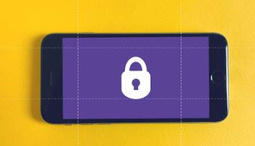- On
- 21 Aug 2022
- Reading time
- 4 minutes
Nowadays, more and more people are choosing to live a digital nomad lifestyle. And while this way of living certainly has its perks, it also comes with certain risks – especially when it comes to staying safe online.
After all, as a digital nomad, you’re likely to be working from a variety of different locations, using public Wi-Fi networks, trying out free spins NZ and playing other online games for fun, and sharing sensitive information online on a regular basis. So, how can you protect yourself from potential cyber threats?
To help you in that field, we've composed an ultimate guide to help digital nomads protect themselves online and stay safe from online threats. Let's explore this guide below without much further ado.
What are the best online protection tools for digital nomads?
There are a few different online protection tools that digital nomads can use to keep their devices and data safe. One of the most important things to do is to make sure that all of your devices are password protected, which includes your laptop, tablet, and smartphone. You should also have a strong password for your email account and any other online accounts that you use.
Another good idea is to install a VPN on your devices. A reputable VPN service will encrypt your data and help to protect you from hackers. There are many different VPNs available, so be sure to do some research to find the one that best suits your needs.
You should also consider using a secure messaging app such as Signal or WhatsApp. These apps offer end-to-end encryption, which means that only you and the person you're communicating with can read your messages.
Finally, it's always a good idea to back up your data in case something happens to your device. You can use an external hard drive or cloud storage services such as Dropbox or Google Drive.
What are some additional online tools that can protect digital nomads from online threats?
And now, let's explore some additional steps you can take as a digital nomad to ensure internet safety and online protection when you're traveling and working remotely from one place to another.
Here's a list of additional four protective measures you can implement as a digital nomad to stay safe online.
1. Don't use public Wi-Fi for sensitive tasks: If you need to log into your bank account or any other site where you enter personal information, do not do so on public Wi-Fi. Wait until you're back at your hotel or hostel and can use their private Wi-Fi instead.
2. Use two-factor authentication: Two-factor authentication adds an extra layer of security to your accounts by requiring you to enter a code that is sent to your phone in addition to your password, making it much harder for hackers to break into your account even if they can see your password.
3. Keep your software up to date: Hackers often exploit vulnerabilities in outdated software to gain access to people's computers and devices. By keeping your software up to date, you make it much harder for them to do so.
4. Be careful what you click on: One of the easiest ways for hackers to gain access to your device is by tricking you into clicking on a malicious link in an email or on a website. Be very careful online and watch what you click on, even if a link looks like it's coming from a trusted source, that might not be the case.
What are the dangers of staying unprotected online if you're a digital nomad?
There are a few dangers to consider if you're a digital nomad and you're not careful about your online security. First, if you're working on sensitive projects, you could be putting yourself at risk of data breaches or hacking. Data breaches can be hazardous and you could end up losing files you've been working on for months.
Second, you could be putting your personal information at risk if you're not using strong enough passwords or encrypting your data. We don't have to delve into what can happen if your personal information gets into the wrong hands. Mentioning identity theft as one of the consequences is more than enough.
Finally, you could be putting your safety at risk if you're not careful about who you share your location online. That's pretty risky too. That's why we advise you to implement all of the safety tools we've thoroughly described in the sections above.
As you can see, being a digital nomad comes with some risks but luckily there are ways you can go around them. There are numerous online protection tools such as VPNs, two-factor authentication, creating strong passwords, keeping your software up to date, and more.
Never be lazy to dedicate time and effort to implement all of these protective tools and remember that staying safe online is essential for each online user, especially digital nomads.



